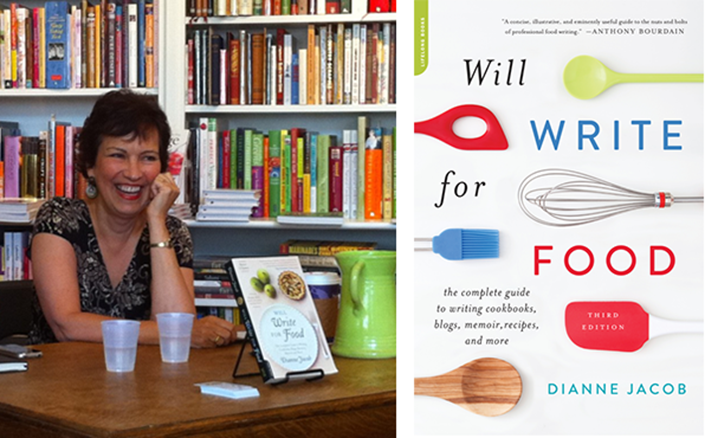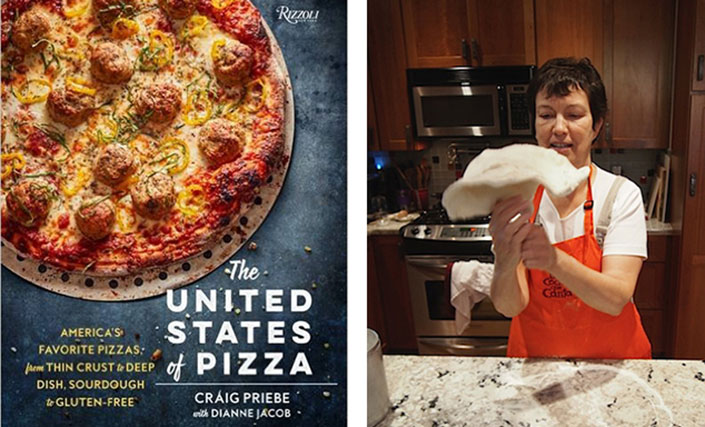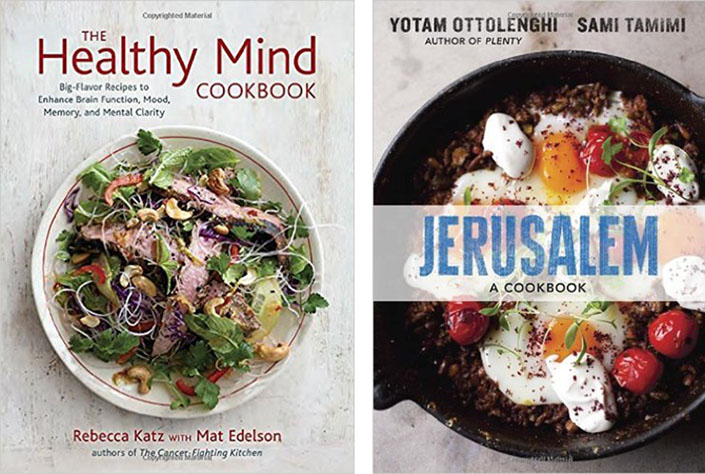Our New Project: Strong Sense of Place
My new project is taking all of my attention right now, and I'd love for you to join me for new adventures! It's called Strong...
Read More
When I set out to write my first cookbook Well Fed, I read and re-read (and re-read) Dianne Jacob’s wonderful book Will Write For Food to help improve my food writing and to avoid embarrassing recipe faux pas like putting my ingredients in the wrong order, using confusing quantities, or forgetting to edit out nondescript words like “delicious.” Will Write For Food continues to be a valuable resource for me, and now, there’s a fresh edition with tons of new and updated information. If you’re an enthusiastic Whole30-er who’s thinking about starting a blog, or you just love food so much you want to share your joy through words, Will Write For Food is for you.
I had the great good fortune to be on a panel with Dianne at BlogHer Food last year, and we’ve become friends as well as colleagues. She is, in a phrase, a good egg—and I’m delighted she agreed to a Q&A with me so we could talk about the new edition of her book, the ethical way to share recipes, her favorite cookbooks, and travel adventures.
MJ: I keep the 2005 version of Will Write For Food right next to my desk. It makes me feel like you’re looking over my shoulder to make sure I don’t use the word ‘delicious.’ Besides the sweet new cover, what else is new in the revised edition of your book?
DJ: When I first wrote this how-to book for food writers 10 years ago, there were hardly any food bloggers, so I didn’t write about that — and as a print person, I was a snob. I thought, “Oh! Those food bloggers. They’re not legit.” It was the prevailing view at the time.
By 2010, I had started my own blog because I realized there were a lot of food bloggers out there, and I needed to learn more about blogging. That was the focus of a new chapter. In 2015, with the new edition, I figured a lot of food bloggers are interested in making money now… they’re hobbyists. They spend millions of hours on their blogs, and they’re starting to think, Can I make any money from this thing?
So I devoted a chapter to how to make money. Most food bloggers can’t really make money directly from their blogs, but they can make money as a result of their blogs. They might discover they’re amazing photographers and suddenly, they’re photographing cookbooks. Or they discover they’re very good at social media, and they become social media consultants.
Otherwise, for this new edition, I’ve updated all the sections on how to write a recipe, how to write a cookbook, how to get more blog followers, what’s a good idea for a cookbook, how to get an agent, how to self publish, and I wrote a lot more about cookbook production.
Your chapter on The Art of Recipe Writing was essential for me; my early blog attempts at recipes and titles are pretty terrible. What are the biggest missteps you see in new recipe writers?
New recipe writers aren’t very confident, and they tend to start with somebody else’s recipe. They might change one or two things and decide that it’s theirs and share it, but really, it’s not theirs. Very few people have brilliant ideas for original recipes, and it takes a lot of confidence to start from zero and come up with something new.
If you’re going to write original recipes, please list the ingredients in the order that they’re actually used, and then use all the ingredients when you write the method. Also, cooks don’t want to get halfway through a recipe then realize they were supposed to marinate something for half a day or chill something for 30 minutes in advance — those kinds of things need to be made clear to readers up front.
As a recipe writer and reader, you also have to know the difference between “1 cup chopped almonds” and “1 cup almonds, chopped.” As a writer, you need to know which one you’re using and use it consistently throughout your recipe writing.
On a related note, I want to talk a little about how bloggers can ethically share recipes online. It’s really important that bloggers share the link to a recipe, rather than just copying and pasting the recipe in its entirely into their own blog or Facebook page. Someone developed and wrote that recipe, so re-printing it isn’t respectful of the original author’s work, no matter how much you just want to share it with your friends. Having said that, recipe writers and bloggers love to get a link back to their work. It doesn’t occur to most people that they way they share a recipe is an ethical choice, but it is! Link, don’t reprint.
The last version of WWFF seemed to shy away from self publishing a little bit. How are you feeling about self publishing now, 10 years later?
I think that self-publishing is really good for certain kind of people: The first is maybe someone whose kid has just gone off to college and starts calling to ask for their favorite meatloaf recipe… or someone who entertains a lot and is always being asked for their recipes… or they want to document and share their family recipes. In all of these cases, we’re talking about a non-commercial project; it’s a book to capture their recipes to give to family and friends.
Self-published cookbooks are also great for control freaks. They get to decide what the cover looks like, and how their book reads and looks. They can even choose the paper if that’s what turns them on.
The other kind of person that it works well for is someone with a huge audience that can connect directly with readers to sell the book. These kinds of bloggers and promoters don’t need to wait for a traditional publisher.
What are your favorite blogs to read for pleasure (or does it all feel like work to you now)?
I start reading for pleasure… and then I switch into work mode. But there are some I love. I’ve read David Lebovitz for years, and I love reading about his life in Paris as an American, in addition to his fabulous recipes and gorgeous photography. Lucky Peach is another favorite, and they’ve started putting more content on their blog. It’s fun because they don’t write about the usual things; they have a unique point of view.
I know you’re a fantastic writer yourself, and you’ve focused on food-related areas in advising others, are you also a food lover?
Thank you so much, Melissa. From an early age, I observed that my parents were obsessed with food and it rubbed off on me. We went food shopping together, and my mother was an incredible cook and baker—my immigrant father pickled produce and brined cheeses and grew strange vegetables in the backyard. Food was their code, a way to remind them who they were and what they remembered. [For a touching story about the significance food can hold, read Dianne’s story The Meaning of Mangoes in Lucky Peach.]
 [photo of Dianne]
[photo of Dianne]
How was it working on The United States of Pizza? What was your role in the development of the book? Did you get sick of pizza?
I made 100 pizzas for that book! This is the second pizza book I’ve co-authored with Chef Craig Priebe. They are his cookbooks, and I help produce them. Craig is the brilliant recipe developer, and I’m the writer and tester. We are a great team, and I ate so much good food during this project.
What’s fun for me is that this book is organized by type of dough, so I had to learn how to make sourdough, cornmeal, gluten-free… And the recipes are based on pizzas made in restaurants around the country, like some little mom-and-pop place in Wyoming and a blue corn flour pizza from Taos, New Mexico. I cooked things that made my friends and neighbors so happy! My favorite was a Reuben pizza stuffed with pastrami, sauerkraut, cheese, and Russian dressing. Chef Priebe spent a lot of time on the gluten-free crust, and it’s really excellent: light, flavorful, beautiful texture.
Yes, I got sick of pizza. We finished about eight months ago, and I’ve only had pizza at restaurants a few times since then — usually when someone else has a craving.

Given that you’ve spent so much time around cookbooks, do you have a favorite?
When I cook, I usually start with what I bought at the farmer’s market and go from there. A book I got recently that I love is The Healthy Mind Cookbook by Rebecca Katz; it’s very imaginative and the recipes are easy. I also love to cook out of Jerusalem like hundreds of thousands of other people do.
You’ve been traveling quite a bit lately. Tell us about where you visited and why.
I recently went to Dubai to teach food writing workshops, and I did a presentation at the world trade center there! It was my second time in the UAE, and I know some food bloggers and writers there now. We went out to wonderful dinners: an Iraqi restaurant that specialized in fire-roasted fish known as masgouf.
We also ate at Catch Dubai, an outpost of a New York City meat-packing district restaurant. The food and restaurant scene in Dubai is growing. Two food bloggers I know are teaching classes on wine appreciation and doing tours to high-end restaurants.
In October, I’ll be in Turkey with food and travel writer Robin Eckhardt — who speaks Turkish and is working on a Turkish cookbook — and her husband David Hagerman, a world-class food and travel photographer. We’re teaching a food writing workshop a little cobbled village on the Aegean for a few days—writing, photographing, cooking, and eating. It’s a small class with lots of personal attention, and there’s one spot left!
Can you explain the services you offer writers?
I offer one-one-one consulting, as well as classes and workshops. I work with people who want to write cookbooks, mostly by coaching them on book proposals, and I sometimes edit manuscripts for those who want to self publish. On August 1, I’m teaching a class in the Bay Area called “Food Writing for Food Lovers”, and in January, I’m teaching in Mexico at a gorgeous spa for a week! [More info on Dianne’s classes and workshops]
Time for the lightning round! I ask the question, and you blurt your favorite!
Yucca or plantains… Sweet plantains
Rice, potatoes, or pasta… Potatoes
Pie or cake… Cake. I love to bake cakes!
Mastering the Art of French Cooking or The Joy of Cooking… The Joy of Cooking
Print books or ebooks… Print. Although I do like to do quick recipe searches on my iPad.
4-star cuisine or home-cooked meals… Home-cooked. Every time.
delicious or tasty… Tasty [Read this awesome post on bad food words.]
foodie or gourmand… Gourmand seems snobby. How about food lover?
Previously a newspaper, magazine, and publishing company editor-in-chief, Dianne became a full-time writing coach, author, and freelance editor in 1996. She coaches writers across the US, Canada, Europe, the Middle East and Asia on book proposals and writing and publishing books, freelance articles, and blogs. She also edits cookbook manuscripts for publishers and shepherds authors through the publishing process. Dianne judges books for the James Beard Foundation and for the International Association of Culinary Professionals annual cookbook awards.
If you love food, food writing, blogs, and talking about all of those things, you need to subscribe to Dianne’s fantastic quarterly newsletter. Do that right here.
Dianne’s blog is also a treasure trove of interesting, engaging, delicious information.
Twitter | Facebook | Instagram
My new project is taking all of my attention right now, and I'd love for you to join me for new adventures! It's called Strong...
Read MoreWe could all use some happy distractions right about now, right? Here are some of the things I found online lately that made me happy....
Read More